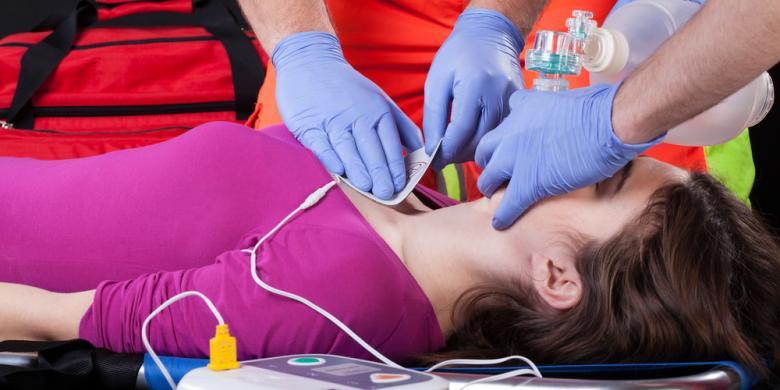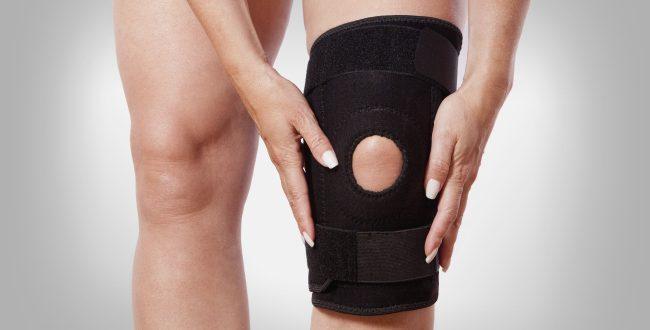Contents:
Medical Video: How to Create a Healthy Plate
At every stage of a woman's life, nutrition and regular exercise are the main foundations of good body health and optimal energy. But certain vitamins and minerals are very important at certain times; your body goes through various things that are not experienced by men and this means you need more certain nutrients. Knowing what are the most important nutrients can help you choose the best foods and supplements.
Here, we explain what you really need and when you need to fulfill it.
Nutrition and minerals are important for women of all ages
1. Calcium
Meeting calcium intake is important for women of all ages, but is far more critical during adolescence and young adulthood, when bones absorb calcium. If you build strong bones from a young age, you will reduce your risk of osteoporosis, aka brittle bone disease, as you get older. Osteoporosis affects one in four Indonesian women aged 50 years and over. After age 35, the body naturally loses bone density, making the risk of suffering from this debilitating condition increase dramatically if your bones are weak.
Most experts recommend a maximum of 1,200-1,300 mg of calcium per day for every woman in general. Natural sources of calcium, such as low-fat dairy products, are a smart choice, because they also contain vitamin D and protein, which are both needed for calcium absorption. Milk, yogurt and cheese contribute to a portion of calcium intake in our food. However, drinking milk alone does not provide enough calcium to make a lot of difference. In addition to calcium-rich dairy products, adult women should consume 600 milligrams of calcium supplements twice a day.
Calcium can also be found in tofu, cereals, soybeans, and drinks made from rice (Genmaicha, horchata, rice milk, rice water, sikhye, sake), vegetables such as kale, broccoli and Chinese cabbage, soft-boned fish such as sardines and salmon, and seeds such as sunflower seeds and sesame seeds.
2. Folic acid
Folic acid or folate (vitamin B9) are important nutrients during pregnancy to prevent the risk of babies developing neural tube defects such as spina bifida or anencephaly. This defect can be crippling and fatal. The spinal cord is formed in the first 12 weeks of fetal life, so folate is very important during the early stages of pregnancy. Sometimes, it can take weeks before you realize you are pregnant, which makes it the reason why all women of childbearing age are advised to take prenatal vitamins enriched with folic acid.
Folate is a vitamin that the body needs to make red blood cells. Therefore, these nutrients are also beneficial for the immune system, energy production, preventing anemia and also providing protection against heart disease and stroke. Women who consume more folic acid are reported to have a reduced risk of developing high blood pressure, according to a study published in the Journal of the American Medical Association in 2005, reported by Live Science - so it's feasible to make sure your diet contains enough even folate even if you don't plan a pregnancy or have passed a fertile period.
Many foods are now fortified with folic acid. Most women get enough folate from their diet through foods such as green vegetables, the main source of folic acid, oranges, pumpkins, avocados, black beans, nuts and olive oil. The recommended daily nutritional number for adult women and children over 11 years is 200 micrograms. On average, pregnant women need a total of 800mcg during the first 12 weeks of pregnancy. However, the body is not designed to absorb folic acid in its natural form as well as process synthetic folate. Although fulfilling folic acid intake from food is highly recommended, it is almost impossible to get 800 mcg only from a diet so it is very important to take supplements. Women of childbearing age who are planning a pregnancy should take folate supplements of 400mcg per day as an additional intake.
3. Iron
Studies show that 4.5 billion people worldwide have low iron levels - one in three suffer from iron deficiency anemia (ADB). Reporting from 1 Health, based on the Riskesdas of the Indonesian Ministry of Health in 2013, around 22.7 percent of women aged 15-49 years and 37.1 percent of pregnant women in Indonesia suffer from ADB.
Iron is very important for making hemoglobin, which carries oxygen from your lungs throughout the body. This mineral is also part of many enzymes and is an integral part of the immune system. It is very important for young women before and during puberty and women of childbearing age consume foods rich in iron and vitamin B12 because a small amount of iron is lost in each menstrual cycle. Iron deficiency anemia makes you feel weak tired, tired, unable to concentrate, more susceptible to infection, weight loss, and depression. The study found that women with anemia tended to consume less protein, folate, iron, as well as vitamins C and B12.
Until girls start menstruating, they need around 8 mg of iron per day. Between the ages of 14 and 18, the recommended intake rises to 15 mg. Adult women between the ages of 19 and 50 need 18 mg a day. Pregnant women must meet 27 mg of iron per day.
Iron sources include fish, meat, poultry, eggs, milk, beans, lentils, and iron fortified cereal breakfasts. For vegetarian or vegan women, you will need supplements. B12 injections are also recommended because this is the best way to promote absorption of vitamins in the body. Many multivitamins also contain recommended daily iron intake.
4. Magnesium
Magnesium is very important for a number of bodily functions. These minerals help the body cope with stress, produce enough energy, and build healthy bones. Magnesium also helps the development of muscles and nervous systems because magnesium plays a role in more than 300 chemical reactions in the body. Magnesium is also important for calcium absorption, another important nutrient for women of all ages. Magnesium is also a detoxifier effective.
Studies show that low magnesium intake may be related to pre-menstrual syndrome (PMS), type 2 diabetes, osteoporosis, and migraines. Symptoms of magnesium deficiency include muscle spasms, cramps, lethargy, poor memory and sleep disorders.
The recommended daily nutritional number for adult women and children over 11 years is 240-320 mg / day. On average, pregnant women need a total of 350-400 mg of magnesium every day. Foods high in magnesium include dark leafy vegetables, nuts, seeds, fish, nuts, seeds, avocados, yogurt, bananas, dried fruit, dark chocolate, and much more.
5. Omega-3
Omega-3 fatty acids are very important for baby's brain development, which makes fulfilling these nutrients the key to the success of pregnancy. Studies also show that women who have a good intake of omega-3 during pregnancy can help to make sure the baby develops a healthy nervous system and may reduce the risk of having a premature baby. Omega-3 fatty acids reduce the risk of stroke, dementia, and Alzheimer's disease. Generally, Omega-3 offers genuine health benefits at every stage of your life.
Fatty fish is a high source of food for omega-3 fatty acids. Taking high doses of fish and omega-3 fatty acids is associated with a reduced risk of heart disease, the number one killer of women, according to a 2002 study published in the Journal of the American Medical Association.
Omega-3 fatty acids are a form of polyunsaturated fat, which also helps slow the growth of plaque buildup in arteries and lowers blood pressure, according to the American Heart Association. Research has shown that omega-3 fatty acids can increase good cholesterol. Some studies have found that fish oil supplements - around 1 to 4 grams per day - triglyceride levels (fat in the blood) decrease by 20 to 50 percent.
You can get all the omega-3s your body needs by eating a few servings of oily fish, each 140g, per week. As a daily supplement in healthy people who rarely / don't eat fish, fish oil supplements are usually consumed in 0.5-1.0 grams per day range. Pregnant women are advised to use alternative sources of fish oil without vitamin A - look for pure supplements labeled "omega-3 supplements".
READ ALSO:
- Function of Vitamin C for Skin Beauty
- 10 Foods That Should Not Be Taken Before Sleeping
- 7 Healthy Oatmeal Recipes for Breakfast












